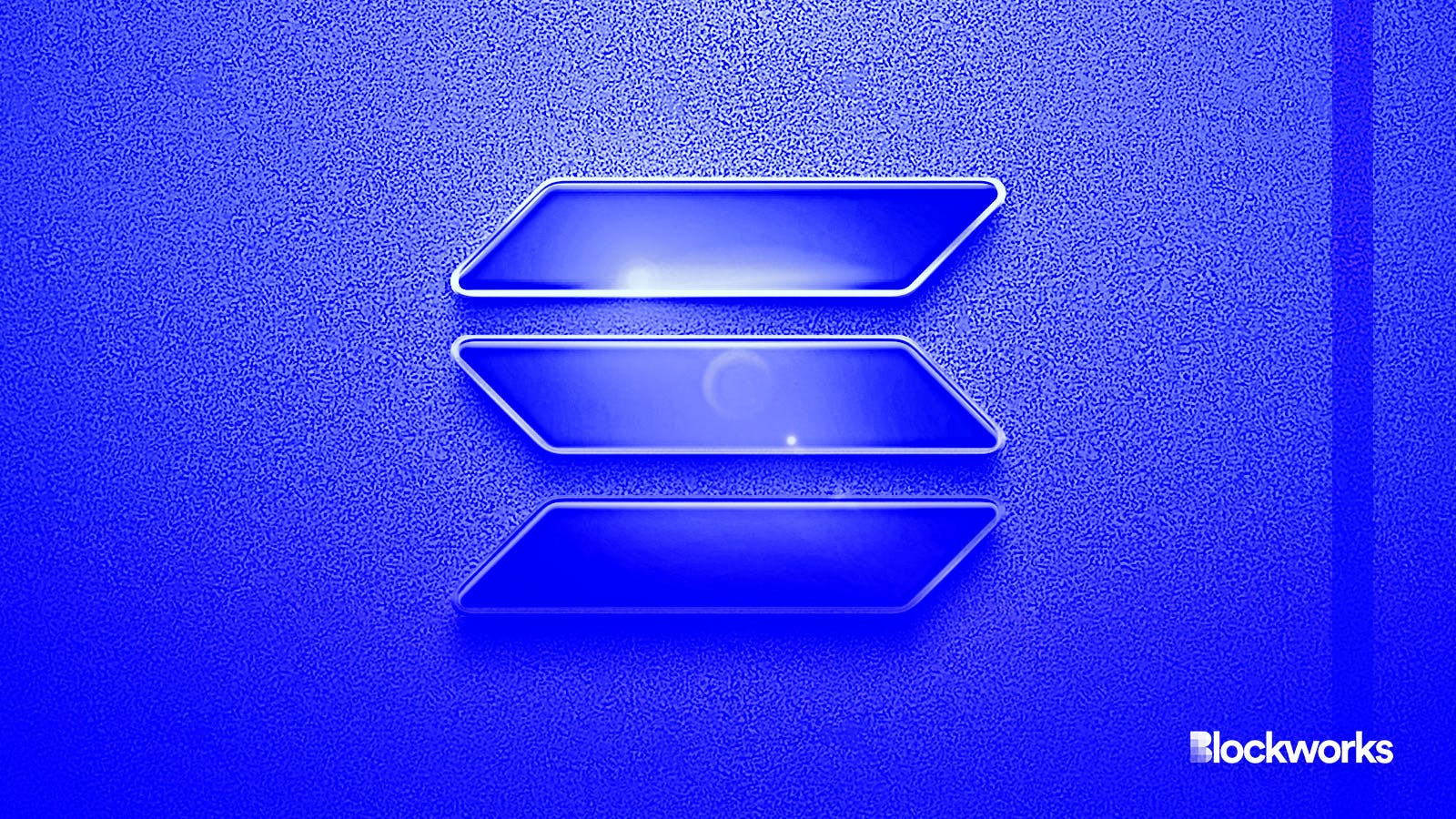Solana price falls further as Ore suspends mining on the network
Ore’s price more than tripled as the supply of new tokens paused

ARTEMENKO VALENTYN/Shutterstock and Adobe modified by Blockworks
One key driver behind Solana’s current congestion issues is giving the network a break.
Hardhat Chad, the pseudonymous creator of the Ore project, has announced the project will suspend all mining activities, effective immediately. This decision comes just weeks after Ore’s launch, amid growing pains for the Solana network that have included severe congestion issues and network instability.
Ore’s price more than tripled on news that the token’s supply would be paused, from around $93 before the announcement to over $300 shortly after, before drawing down to around $215, according to CoinGecko. Solana extended its bearish week even further, falling roughly from $131 to $127.
Ore is a blockchain-based project that implemented a proof-of-work (PoW) token distribution mechanism on the Solana network to explore a possibly more engaging and equitable way of distributing cryptocurrency.
Since Ore began trading earlier this month, the network’s diehards have flocked to what some dubbed Bitcoin on Solana.
Bitcoin uses a PoW mechanism to distribute new coins and validate transactions. While secure, this system has been known to result in high energy consumption and slow transaction times.
The Solana blockchain, which has high throughput and low transaction costs, operates differently. It uses a proof-of-history (PoH) consensus combined with proof-of-stake (PoS), which significantly speeds up transactions and reduces costs.
Ore was introduced as an experiment to explore how proof-of-work could be implemented on Solana as a fun and fair token distribution mechanism. It aimed to merge the security and distribution model of PoW with Solana’s high-speed transaction capabilities.
Shortly after launch, Ore became the most active program on Solana by transaction count, according to the project’s creator.
Amid the deluge of transactions, as many as 75% of non-vote Solana transactions were not going through in early April, according to a Dune Analytics dashboard. That figure is closer to 60% now.
While colloquially referred to as “failed” transactions, Solana’s problem is actually that the network is failing to schedule some transactions effectively. That means they’re dropped from the network before ever being included in a block. Regardless, to the end user, a frustrating fraction of on-chain actions are failing to land.
Ore highlighted how Solana’s low fees can actually work against the network when the transaction cost isn’t high enough to discourage spam.
Read more: Solana’s cheap fees are turning out to be a curse — for now
This realization has led to the current pause in Ore mining activities, allowing Hardhat Chad and their team to redesign the Ore contract for a Version 2 (v2). The next iteration aims to optimize the existing system, address inefficiencies that gave some miners an asymmetric advantage, and introduce structural incentives for holding the token, which were previously lacking.
“Welcome back, Solana,” one industry watcher wrote on X.
As Solana continues to deploy patches like v1.17.31 to improve performance and manage congestion, Ore’s v2 is being developed to better align with these network upgrades. All existing Ore tokens will be upgradable one-for-one into the new v2 token, ensuring fairness and continuity for current participants.
The mining halt is only temporary, as Ore hopes to bring its PoW concept back to Solana under more favorable conditions.
Get the news in your inbox. Explore Blockworks newsletters:
- The Breakdown: Decoding crypto and the markets. Daily.
- 0xResearch: Alpha in your inbox. Think like an analyst.






